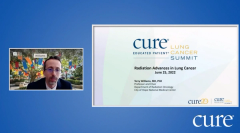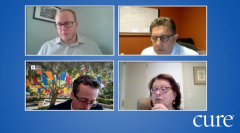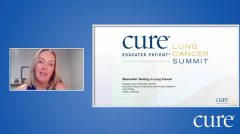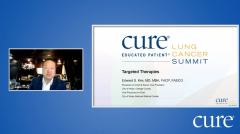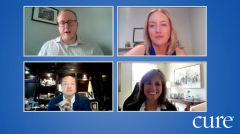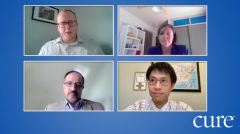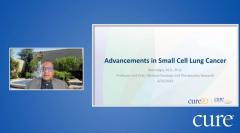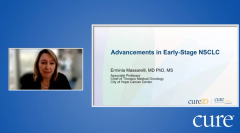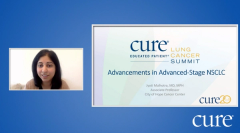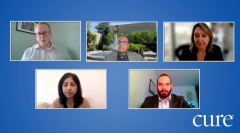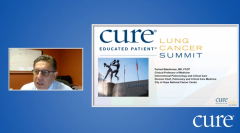
Educated Patient® Lung Cancer Summit Advancements in Early-Stage Non-Small Cell Lung Cancer Presentation: June 25, 2022
Watch Dr. Erminia Massarelli, from City of Hope, discuss advancements in early-stage non-small cell lung cancer during the CURE Educated Patient Lung Cancer Summit.
Episodes in this series

When treating early-stage non-small cell lung cancer (NSCLC), the goal is not only to eradicate the tumor cells, but also to prevent the cancer from coming back in the future, as many patients with the disease will face a recurrence, explained Dr. Erminia Massarelli.
Massarelli, associate professor and chief of thoracic medical oncology at the City of Hope Cancer Center in Duarte, California, discussed early-stage lung cancer at the CURE® Educated Patient® Lung Cancer Summit.
“About 40% of early-stage non-small cell lung cancer patients treated with adjuvant chemotherapy recur with metastatic non-small cell lung cancer. And therefore, there are multiple ongoing trials… (being conducted to) understand how we can better influences this variable,” Massarelli said in her presentation.
A deeper understanding of the genetic mutations that cause lung cancer have led to the development of targeted therapies that are crafted to target specific types of lung cancer cells.
“Non-small cell lung cancer is the largest, most frequent lung cancer that we have. But within non-small cell lung cancer, (there are) subclassifications of lung cancers according to if they have EGFR, for example, mutations or other driver alterations,” Massarelli said.
EGFR is a common class of genetic alterations that is seen in patients with NSCLC. In 2020, the Food and Drug Administration (FDA) approved adjuvant (post-surgical) Tagrisso (osimertinib) for patients with EGRF-mutant NSCLC. The approval was based off findings from the ADAURA trial, which showed that 89% of patients with resected stage 1B, 2 or 3A NSCLC were alive and disease-free 24 months after treatment, compared with 52% of patients who received a placebo.
Another clinical trial called NEOS showed that Tagrisso is safe in this patient population, though may be more effective in patients who do not have an RB1 mutation. However, for many patients with early-stage EGFR-mutant NSCLC, Tagrisso is extremely beneficial.
“There were some patients who, after one to two months of (Tagrisso), basically had complete regression of their tumor or a partial reduction (in size),” Massarelli said. “(This) is actually a very good achievement because the key for EGFR-mutant non-small cell lung cancer is to kill and eradicate the clones of the cells early on so that they cannot metastasize.”
While targeting EGFR is a promising advancement for those with the mutation, “there are still about 30% to 40% of non-small cell lung cancer (cases) for which we don’t know their driver mutation,” Massarelli explained.
For these patients, immunotherapy may be their first line of therapy, either before or after undergoing surgery.
Earlier this year, the
“(Opdivo) plus chemotherapy improved the pathologic complete response, independently of radiologic downstaging. That’s very important because, as we know today, when patients are on immunotherapy, especially in stage 4, sometimes it’s very difficult to evaluate the response on the scans,” Massarelli said. “So, this is real proof that there was a disappearance of the tumors in patients who were treated with chemotherapy plus (Opdivo).”
However, when it comes to improving outcomes for early-stage lung cancer, there is still more work to be done, Massarelli noted.
“More trials are really needed to explore the possibility of other targeted therapies against other driver mutations in non-small cell lung cancer,” she said. “We envision that we’re going to be able to improve more (in treating) non-small cell lung cancer, trying to treat patients very aggressively early on in presentation.”
For more news on cancer updates, research and education, don’t forget to

